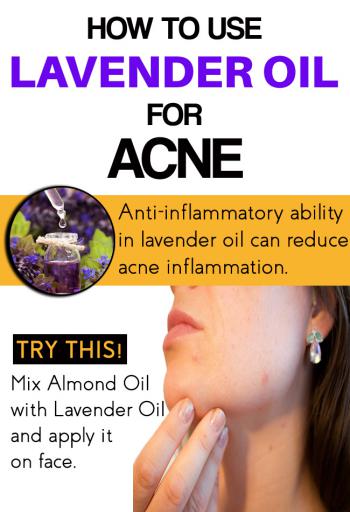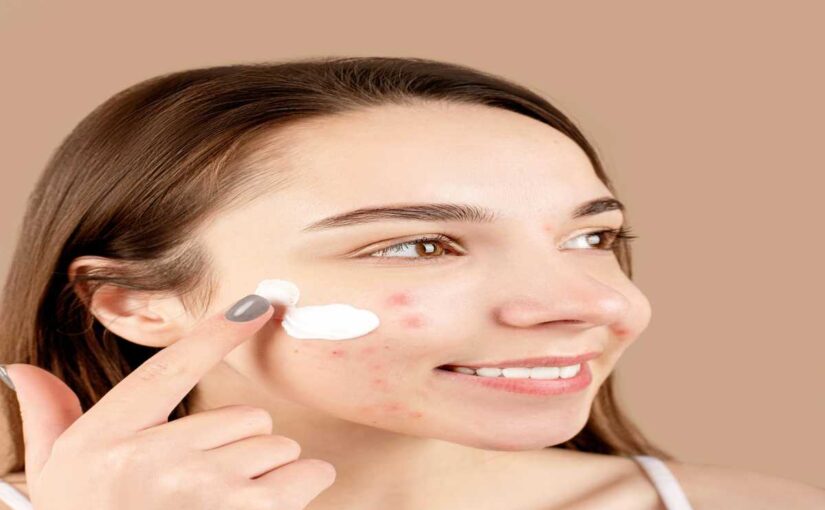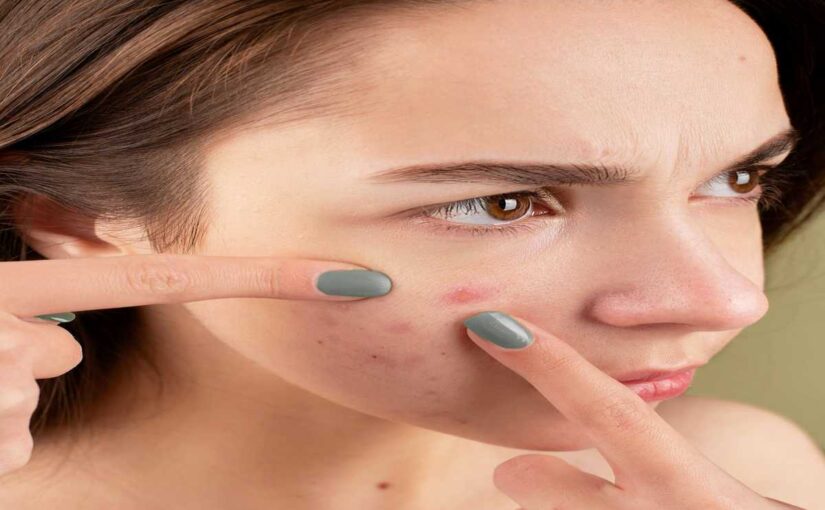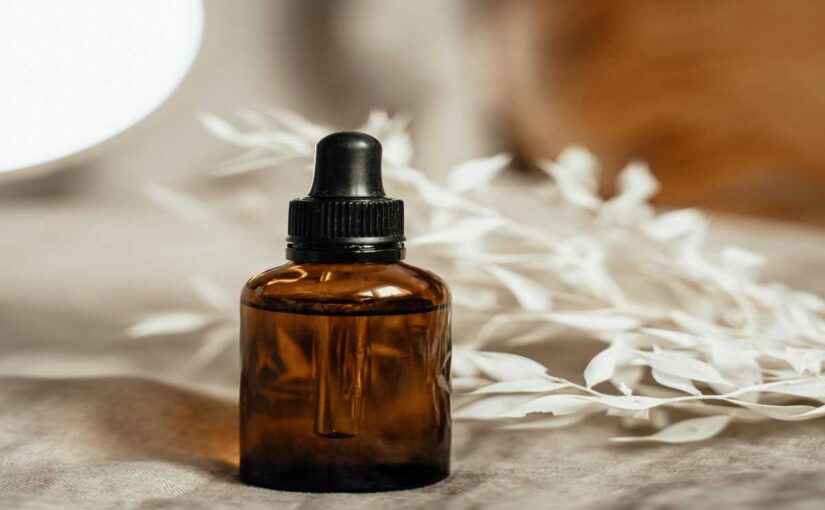
Essential oils are prominent for their soothing aromatic ability. Sometimes, these innate ingredients can help treat chronic ailments effectively than any other methods. Lavender oil for acne is one such example.
Studies show that more than 70 percent of teenagers around the world are suffering from acne lesions. Yet, most people turn towards chemically incorporated creams.
Though in some cases these anti-acne creams can be effective in treating acne, anecdotal reports claim that repeated use of these products can damage natural elastin of your skin.
What Causes Acne?
Acne is common and normally appears on the face, but can also affect back, chest and neck. Experts claim that inflammation is the main cause behind pimples.
When your body secrets excess sebum due to hormonal imbalance, it gets clogged at pores along with dead cells leading to bumps.
You must undergo regular treatment for months to treat acne and continue it to fade acne scars.
Thousands of drugs are manufactured to reduce acne, but those who want to pamper their skin look for natural ingredients like lavender oil for treating acne lesions.
Does lavender essential oil help treat acne?
Stay with me to know its nutrients and their ability to treat acne.
Distinguishing it from other essential oils, lavender oil is renowned for its relaxing and fragrance. The oil is made after subjected lavender plant flower to the distillation process. Right from ancient times, lavender oil has achieved significant importance for its healing and soothing activity.
Also read: Benefits of Cinnamon for Pimples
Is Lavender Oil Good for Acne?
University of Maryland Medical Center, aromatherapists uses lavender essential oil to treat acne. (1)
Studies also state that this essential oil can treat insomnia, stress and help to get rid of depression.
Unlike other ingredients, lavender oil penetrates deep into the skin pores and remains there, even if you wash it.
- Antimicrobial and antibacterial properties: Like most innate remedies, lavender oil is packed with these exceptional properties, which can help to thwart infectious bacteria from acne lesions.
- Antioxidants: a Most common risk factor for all diseases is free radicals. Antioxidant activity housed in lavender oil fights free radicals and saves you from chronic skin diseases.
- Antiseptic abilities residing in this essential oil can fasten the healing process of acne and minor burns.
- Anti-inflammatory agent: Studies show that lavender oil exhibits anti-inflammatory activity. As mentioned above, acne lesions are caused due to inflammation, which can be reduced by topical application of this oil.
- Astringent properties: This property helps to remove impurities and rejuvenate the skin.
- Reduce itching: Pimples are accompanied by redness and itching. Assorted nutrients in lavender oil have shown a positive result on reducing itching. (2)
- Traditionally, this oil has been used to heal insect bites and it’s a good insect repellant. (3)
- Regular application of lavender essential oil can improve blood circulation, which helps to boost cell regeneration and tone your skin.
A study carried in 2014 state that stress, hormonal imbalance, and sleep deprivation may also cause acne lesions. (4) So, use of lavender essential oil can help to reduce adult female acne, because it can reduce stress and insomnia.
Apart from this, essential oils are gentle on your skin.
Note: However, few people may experience allergic reaction to topical application of concentrated essential oils. Please patch test before using it on the face.
How to Use Lavender Oil for Acne?
Not just pimples, you can use lavender oil to treat minor burns, cuts and other skin disorders.
Direct application of lavender essential oil can irritate your sensitive skin, so beauty experts recommend blending it with other carrier oils.
Below listed are different recipes, which you can opt to treat acne.
#1. Egg White and Lavender Oil
Lysozyme is an enzyme packed in egg white that thwarts P.acnes bacteria. Its sticky nature helps to remove dead cells, impurities, and excess oil.
Antioxidant ability exhibited by B-vitamins in egg white reduces oxidative stress and wrinkles.
Bleaching property of this home available ingredient can lighten the appearance of acne scars.
- Whisk egg yolk and mix 2 drops of lavender essential oil to the bowl.
- Stir thoroughly.
- Wash your face with lukewarm water and cleanse it with gram flour. This will open blocked skin pores.
- Now, apply the obtained face mask using clean fingers.
- Massage in a circular motion and then allow it to dry for 15-20 minutes.
Related post: How to Use Egg White for Acne?
#2. Almond Oil and Lavender Essential Oil
Fatty acids residing in almond oil can effectively reduce acne scars and clear clogged skin pores.
Assorted vitamins loaded with this innate ingredient can improve the overall functioning of your skin.
- Take 2 tbsp of almond oil and mix it with 4-5 drops of lavender essential oil.
- Mix thoroughly and then apply it on the prewashed
- You can use this face mask as spot acne treatment.
- Allow it to dry naturally for 20 minutes and then rinse it off with water.
#3. Rosehip Oil and Lavender Oil for Acne
Beauty experts say that rosehip oil is loaded with healing abilities that can fasten the healing process of acne.
Vitamin A, C, and E housed in this oil can make the skin firm, healthier and radiant.
- Take 2 tbsp of rosehip seed oil and mix 3-4 drops of lavender oil.
- Optionally, you can also mix 2 drops of frankincense oil.
- Now, wash your face and pat dry using a soft cloth.
- Take a cotton ball and apply the facial on acne affected skin.
- Rinse it off after 15-20 minutes.
Also read: Is Rosehip Oil Good for Wrinkles?
#4. Aloe Vera and Lavender Oil
Gibberellins and polysaccharides are two hormones residing in aloe vera gel that is known for exhibit antibacterial abilities.
Glycol residing in the gel has an anti-inflammatory property that reduces acne inflammation.
Essential vitamins and nutrients loaded in aloe gel tighten the skin, reduce wrinkles and make it radiant.
- Mix 1 tablespoon of aloe gel with 2 teaspoons of lavender essential oil.
- Optionally, you can mix ½ tsp of rose oil.
- Wash your face to remove impurities, makeup and excess sebum.
- Pat dry and apply the face mask.
- Rinse it off with water after 15-20 minutes.
#5. Oatmeal and Lavender Oil for Acne Scars
Oatmeal is prominent for its exfoliating ability. Topical application of this natural ingredient will remove dead cells, excess sebum and reduce acne inflammation.
Soothing property exhibited by this home remedy is essential for acne affected skin.
- Grind 2 tbsp of oats in a food processor to obtain fine flour.
- Now, add 5 drops of lavender essential oil to it.
- Optionally mix 1 tbsp of Epsom salt and 1 tsp of baking soda.
- People with sensitive skin must stay away from excess use of baking soda.
- Now, apply the mix face mask on acne affected skin.
- Rinse it off with water after 15 minutes.
#6. Lavender Oil and Carrier Oil
High concentration of essential oil may trigger burning sensation on your face. So, beauty experts recommend diluting it with carrier oil.
In this case, I recommend jojoba oil. As it is packed with a non-comedogenic ability that unclogs skin pores and tricks skin to produce less sebum.
Also read: Is Jojoba Oil Good for Acne?
- Mix 1 tablespoon of jojoba oil with 1 teaspoon of lavender essential oil.
- Wash your face and then apply this obtained facial.
- Use a cotton ball to apply the face mask on acne affected skin.
- Rinse it off with water after 15 minutes.
- Repeat this simple process every day to see positive change.
#7. Yogurt and Lavender Oil
Plain yogurt contains bacterial cultures that aids in digestion when applied topically, the same bacteria can kill P.acnes bacteria to obtain clear skin.
Lactic acid present in yogurt can remove dead cells that clog your skin pores. Exfoliating ability exhibited by this ingredient can lighten the appearance of acne scars.
- Take 1 tbsp of plain yogurt in a bowl.
- Add 2 drops of lavender essential oil to it and mix thoroughly.
- Wash your face with lukewarm water or expose it to steam to open blocked skin pores.
- Apply this facial to your face in circular motion and then leave it to dry.
- After 15-20 minutes, rinse it off with normal water.
#8. Lavender Oil and Apple Cider Vinegar
Antibacterial and antiseptic abilities present in ACV can help to restrain bacterial infection.
Apart from that beta-carotene residing in apple cider vinegar can fasten the healing process and thwart free radicals.
- Take equal amount of apple cider vinegar and distilled water.
- Now, add few drops of lavender essential oil to the solution.
- Apply this toner on your face and allow it to dry naturally.
- Best time to apply this natural toner is before going to bed.
- Rinse it off with water in the morning.
Topical application of this facial will help to reduce excess oil from your skin.
#9. Baking Soda and Lavender Oil
Exfoliating property of baking soda is known to remove dead cells, excess sebum and other impurities from the skin.
Its anti-inflammatory ability reduces acne inflammation and swollen bumps on your face.
However, excess use of baking soda can irritate your sensitive skin. Patch test before applying it to your face.
- Take 2 tbsp of finely grounded oatmeal, 1 tbsp of baking soda and 2 tbsp of water in a bowl.
- Add 3-4 drops of lavender essential oil to above mixture.
- Aromatic benefits of the essential oil can help reduce stress and fasten the healing.
- Thoroughly mix and apply the facial on your face.
- After 15-20 minutes, rinse it off with water.
#10. Rosemary Oil and Lavender Oil
Extensively used for culinary purposes, rosemary essential oil can be used to reduce acne inflammation. Topical application of this oil will clear your skin, improves circulation and reduce acne swelling.
- Mix 1 egg white, 1 tbsp of honey and 5 drops of lavender oil with 5 drops of rosemary oil.
- Now, apply this mixed facial on your pre-washed
- Allow it to dry naturally for 15-20 minutes.
- Rinse it off with water and then pat dry with a soft cloth.
You can directly apply lavender oil topically over pimples; anyhow to spread it evenly experts recommend mixing 4 drops of almond oil to it.
4 Ways to Use Lavender Oil to Get Rid of Acne
- Steam inhalation is the simplest way to reap benefits of lavender essential oil. Get essential oil diffuser for this purpose. Add lavender oil to water and inhale for about 15 minutes.
- Pillow rub, this method will help to rejuvenate skin and fasten the healing. Take 2 drops of lavender essential oil and rub it on your pillow.
- Hot bath, add 2-3 drops of lavender essential oil to bathtub. This will help to thwart P.acnes bacteria and reduce inflammation.
- Spot treatment is more effective than any other method. Dip a cotton swab in lavender essential oil and then apply directly on acne bumps.
Apart from using it has medicine you can use lavender oil as a perfume, air freshener, lip balm and for culinary purpose.
Important Tips
Before using above mentioned recipes, make sure to patch test to confirm your skin isn’t allergic to facial ingredients.
Avoid ingesting foods that trigger acne inflammation.
Consume vitamin-rich diet and herbal tea to treat acne and other skin ailments.
As mentioned, anecdotal reports claim that stress can trigger acne. So, avoid it. Aromatic benefits of lavender essential oil can help you to reduce stress.
No need to tell, don’t squeeze or pressing acne lesions.
Don’t give up. Keep using natural ingredients to see positive results.
If you ever tried lavender essential oil to treat acne, please share your experience here in comments.



